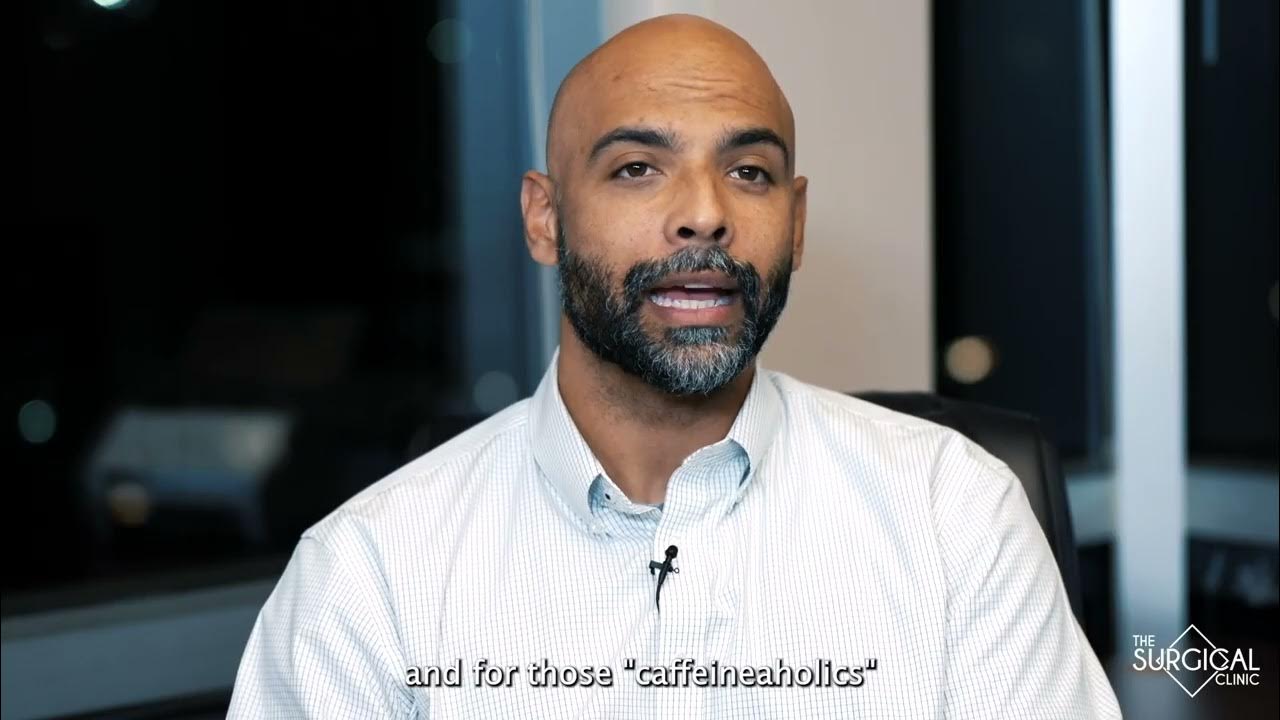Gastroesophageal Reflux Disease (GERD) Signs & Symptoms (ex. Bad Teeth) | & Why They Occur
Summary
TLDRThis lesson provides an in-depth look at gastroesophageal reflux disease (GERD), explaining its causes, symptoms, and risk factors. GERD occurs when the lower esophageal sphincter weakens, allowing acidic stomach contents to reflux into the esophagus. Key symptoms include heartburn, regurgitation, coughing, hoarseness, and dental issues. The video also highlights factors that worsen or improve symptoms, such as body position and dietary choices. Risk factors include obesity, certain foods, and conditions like hiatal hernia. GERD can lead to complications if untreated, including esophageal cancer and chronic periodontitis, making early management crucial.
Takeaways
- 😀 GERD (Gastroesophageal Reflux Disease) occurs when the lower esophageal sphincter (LES) weakens or opens inappropriately, allowing gastric contents to reflux into the esophagus.
- 😀 GERD affects approximately 20% of adults at some point in their life and is linked to risk factors like obesity, certain foods, and anatomical conditions such as hiatal hernia.
- 😀 The most common symptom of GERD is heartburn, often described as a burning chest pain, especially after eating or drinking.
- 😀 Factors that exacerbate GERD symptoms include lying down, eating late at night, consuming certain foods (chocolate, caffeine, alcohol), and eating too quickly.
- 😀 Symptoms of GERD can be alleviated by sitting up, taking antacids, eating more slowly, and avoiding specific foods and beverages.
- 😀 Other symptoms of GERD include regurgitation (partially digested food coming back up), belching, chronic cough (worsening at night), and hoarseness due to acid irritation.
- 😀 GERD may cause a sour or unpleasant taste in the mouth, excessive salivation (water brash), or, less commonly, dry mouth.
- 😀 Dental health can be affected by GERD, leading to issues like gum recession and dental erosion, increasing the risk of chronic periodontitis.
- 😀 Nausea and epigastric pain (pain in the upper abdomen) can result from GERD, with epigastric pain caused by esophageal irritation from acid reflux.
- 😀 GERD can lead to dysphagia (difficulty swallowing) and odynophagia (painful swallowing), both of which can progress if untreated and may increase the risk of esophageal cancer.
Q & A
What is gastroesophageal reflux disease (GERD)?
-GERD is a condition where the lower esophageal sphincter (LES) weakens or opens inappropriately, allowing acidic gastric contents to flow back into the esophagus, causing symptoms like heartburn.
What are the main symptoms of GERD?
-The primary symptoms of GERD include heartburn (burning chest pain), regurgitation (food coming back up), belching, chronic cough, hoarseness, sour taste in the mouth, excessive salivation, nausea, epigastric pain, difficulty swallowing (dysphagia), and painful swallowing (odynophagia).
What causes heartburn in GERD?
-Heartburn occurs because the LES opens improperly, allowing acidic gastric contents to reflux into the esophagus, which causes irritation and a burning sensation, typically in the chest.
How can lying down worsen GERD symptoms?
-Lying down flat can worsen GERD symptoms because it allows gastric acid to flow back into the esophagus due to gravity, exacerbating the burning sensation and discomfort.
What dietary factors can worsen GERD symptoms?
-Certain foods and beverages, including chocolate, caffeine, alcohol, and eating too quickly, can exacerbate GERD by triggering inappropriate relaxation of the LES.
How can GERD symptoms be improved?
-GERD symptoms can be improved by sitting up, using antacids to reduce stomach acidity, eating slowly, and avoiding certain foods and beverages that trigger reflux.
What is regurgitation in the context of GERD?
-Regurgitation is the sensation of partially digested food or liquid coming back up into the throat or mouth due to the LES allowing gastric contents to reflux into the esophagus.
How does GERD contribute to dental issues?
-GERD can lead to dental problems like gum recession and dental erosion, as repeated exposure to gastric acid in the mouth can damage teeth and gums. This can also increase the risk of chronic periodontitis.
What is the connection between GERD and chronic cough?
-GERD can cause chronic cough by irritating the airways when acid refluxes into the esophagus, especially when lying down. The cough is typically worse at night.
What are the potential risks of untreated GERD?
-Untreated GERD can increase the risk of esophageal cancer and cause complications like esophageal strictures, chronic pain, and permanent damage to the esophagus.
What is dysphagia, and how does it relate to GERD?
-Dysphagia is difficulty swallowing, which can occur in GERD when the esophagus becomes irritated or damaged by prolonged acid exposure. It can progress from difficulty swallowing solids to liquids and may indicate esophageal cancer in severe cases.
Outlines

This section is available to paid users only. Please upgrade to access this part.
Upgrade NowMindmap

This section is available to paid users only. Please upgrade to access this part.
Upgrade NowKeywords

This section is available to paid users only. Please upgrade to access this part.
Upgrade NowHighlights

This section is available to paid users only. Please upgrade to access this part.
Upgrade NowTranscripts

This section is available to paid users only. Please upgrade to access this part.
Upgrade NowBrowse More Related Video
5.0 / 5 (0 votes)





